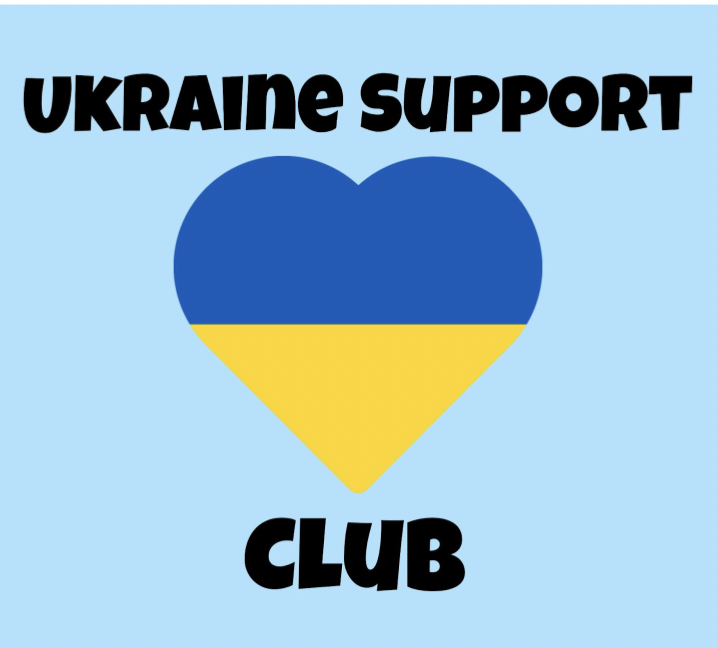New Ukraine Support Club provides methods to take action
Graphic by Hannah Ratcliffe ’22
New Ukraine Support Club takes place at Staples where students can learn more about the current war against Russia and Ukraine as well as ways they can make a difference.
Due to the current Russian-Ukrainian War, many students have experienced a feeling of helplessness, as it is unclear what they can do to make a difference. As a result, Thomas Sargent ’22 and other student leaders have created a new club at Staples that offers students a way to become more aware about the war, while also making a difference.
“I’m not Ukrainian nor do I have any relatives in Ukraine,” Sargent said. “However, I’m a student of history, and I believe everyone has a responsibility to be a global citizen.”
After taking inspiration from his Contemporary World Studies class with social studies teacher Cathy Schager, Sargent decided to create a group that plans to put pressure on Russia through contacting the Congressional representatives, informing students on how they can personally take action and organizing events to raise direct support for Ukraine.
“The idea was conceived by students,” club advisor David Willick said. “Students went to Mr. Dunlap to get permission to meet and I was asked by Thomas because he’s been my student for two years. I accepted because I think it’s a great cause and I want to support these students as they make a difference.”
The Ukraine Support Club had their first meeting on Thursday, March 3, where they discussed a brief overview of the conflicts leading up to that point, including Intel’s decision to stop supplying processors to Russia. Each week the club will focus on unpacking any direct updates from the conflict, as well as the responses from the global community. Additionally, they laid out the foundation for how the club would operate.
“We are organized into two teams, the advocacy team and the fundraising team, where fundraising will also be responsible for material gatherings like clothing drives,” Sargent said.
Sargent recommends the World Vision Ukraine Crisis Fund to any students who want to make a difference immediately. The Ukraine Support Club is open to all students who are interested in helping the Ukraine population during their war against Russia, as well as students who want to become more knowledgeable about the current conflicts.
“We meet every Thursday in room 2061,” Sargent said. “People are going to ask you in 10 or 20 years, ‘what did you do to help democracy when it was under attack.’”

















































